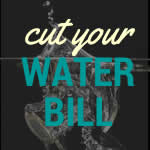Mr N has asked:
On checking my credit score I have two defaults on my account both with the same creditor. First default was on 11/14 and the second 08/16 for a total of £1,750. I am now able to get back on track and get a loan to pay this in full. If I write to the debt collector and say I can pay this off and they give me their guarantee to put fully settled on my credit record, is this the best way forward or is there a better way?
That’s a good question. Many people want to know the best way they can sort old problems out when their situation has improved. I’ll look at Mr N’s specific case and then at some other variations where the possible choices are different.
 What might a good solution be?
What might a good solution be?
There are four objectives you might want to achieve, looking for a way forward that:
- solves the debt problem quickly;
- costs as little as possible;
- leaves you with the best credit score;
- is low risk.
These are the measuring sticks for how good a possible solution is. If you can’t have all of those, you have to think which matters most.
The fundamental rule about defaults
Debts which have been defaulted will disappear after six years from your credit record. This is going to happen if you pay it in full, settle it partially, have started repaying it or ignore it.
Mr N’s debts with default dates in November 2014 and August 2016 will drop off in November 2020 and August 2022, whatever he does.
It’s good to know exactly what your credit record says – not guess that it got bad a few years ago. So check your credit records for all your old debts, noting what the default dates are.
Although the defaults are going to disappear, the debts still matter:
- if Mr N ignores the debts, he may well get a CCJ – and that would mess up his credit record for another six years;
- repaying the defaulted debts starts the process of improving his record before the defaults go.
Should Mr N get a loan?
If Mr N gets a loan to repay the defaulted debts that will prevent any problems about CCJs and start the process of improving his credit record. His credit score won’t get to be “good” until August 2022 when the last default goes, but it will be going up.
There are two big problems. It is going to be costly – with a poor credit record, Mr N won’t be able to get a cheap loan. And if he then has new financial difficulties, he may get into trouble with the new loan, which then be on his credit record for another 6 years. So it isn’t certain to work either.
Borrowing more to repay old defaulted debts is rarely a good idea. At the moment interest isn’t being added to them, so switching them for paying interest means things will get harder not easier.
So let’s look at two options that could often work better.
Option (1) start a repayment plan
Say Mr N could manage to pay £70 a month to the loan he is thinking about. If instead he contacts the debt collector and makes an arrangement to pay that to his debts, they will be cleared in a couple of years and of course they will be dropping off his credit record. Debt collectors who are offered a monthly repayment that will clear the debt in a few years aren’t going to bother to go to court for a CCJ.
This is cheaper than getting a loan (no interest) and quicker (because there is no interest the debts will be cleared sooner than the loan would be repaid). It is also less risky – if he has problems managing the repayment he can ask for it to be reduced but this won’t damage his credit score.
If he wants to improve his credit score even faster, he could get a bad credit card, using it each month for something small and repaying it in full. That way he gets good marks on his credit record but isn’t paying any interest or getting further into debt. This is a good option if Mr N is careful about using this sort of card properly as they can be a trap.
Option (2) a partial settlement
If he saves up the money he would be paying to a loan, he will soon have a pot of money that he could use to offer a full and final settlement to the debts.
This may feel less certain – what if the debt collector contacts him and says he might be taken to court? But if this happens he has some money saved he can offer as a settlement and if that is rejected he can just arrange a monthly repayment.
Other variations
Here are some other situations that are rather different from Mr N’s.
Want a mortgage as soon as possible
If you are hoping for a mortgage before the defaulted debts disappear from your file they need to be paid in full and as soon as possible and not by getting a loan. See Can I get a mortgage with debts? for more info.
Get a secured loan?
You may be able to get a secured loan a lot cheaper than an unsecured loan. But it is a lot more risky so it’s not a good idea! There are usually much better ways to tackle old defaults than putting your house at risk.
No defaults on file
If you have been in debt management for a long while but a debt hasn’t been defaulted, it is usually better if you ask for a default date to be added, as the record will then disappear from your credit file sooner. See What should the default date be? for details about how to do this.
What if he ignores it?
This doesn’t fit what Mr N wanted – something that will sort his problem out and improve his credit score.
See No calls or letters about a debt for years? which looks at this option.



Vicky says
Super helpful information here. I got into debt by clearing one credit card with a new one and it really can spiral, so I agree that this isn’t a great idea. I got free debt advice and never looked back. Contacting Money Advice Service will help, but I worked with CAP (Christians Against Poverty) and they are amazing!
Steven Van Rooyen says
A really good piece of advice here. Debt settlement is a vicious circle, if you are thinking about settling one debt by taking another loan then you should really think before exercising this option as the other methods mentioned in the article are much better.
[Link deleted as it doesn’t apply to English debts]
Mr.M says
Hi Sara. Kind of stuck in a debt circle at the moment. Minimal payments, interest, and collection letters currentlt plaguing me, and the situation doesn’t seem to be improving much at all.
I’m currently 31 years of age, and the firm I work for has recently closed their final salary pension scheme, and set us up with a new one, which has £500 a month going into it inclusive of both my own, and their contributions.
I have just recently received my transfer value for my old final salary pension (big risk of this pot falling into the PPF so transferring is a must), and it is valued at £110,000. Is there a way that I could use this to get me free from debt (totalling 25k). I understand that it is frowned upon as it leaves a question mark over affordability, but with 3 quarters of the pot remaining, and also a second pension growing to the tune of £500 a month, over the next 30 years, I should be okay.
Of course I’m aware my age may leave a big question mark over this route.
Sara (Debt Camel) says
There is no way you can legally access your pension aged 31. Don’t fall for anyone that tells you it is possible – there are a lot of scammers around.
If you are concerned about your final salary scheme you will need to take advice on transferring it out to a money purchase pension.
So you need to find a different way forward for your debts. If you can’t meet the minimum payments, look at a debt management plan, see https://debtcamel.co.uk/debt-options/guide-to-dmps/. If that will take too long, you need to look at insolvency options – bankruptcy if you don’t own a house, an IVA if you have a house with equity. Although if you have a house with a lot of equity you may be a lot better off if you sell the house, clear your debts and start again, without an insolvency marker on your credit record.
Laura says
Hello! Really helpful info here. Would you recommend a mortgage guarantor here too?
Thanks,
Sara (Debt Camel) says
I think guarantor loans in general are a very risky form of debt that often traps people into very difficult situations. Most people who take out a guarantor loan expect to be able to make the repayments – it is human nature to be optimistic. But often people were already in a big financial mess which is why they could only get a guarantor loan and the new loan with its high interest and large repayments makes this worse, not better. They then find the big downsides of guarantor loans – that a borrower is barred from the normal forms of debt solutions such as debt management plans and insolvency in order to protect their relative of friend from having to pay.
Anyone who feels that they should never have been given a guarantor loan as the lender would have realised the repayments were too high read https://debtcamel.co.uk/how-to-complain-guarantor-loan/ which explains how to complain.
Mortgage guarantor loans are slightly different as the interest rates are obviously low and also the lenders do tend to look in great detail at affordability. They are always going to be a minority market as these are huge commitments for the guarantor and few people can afford them.
In general I guess my preference is for simpler, cleaner products. If you want to help your child get a mortgage, give then a large deposit.
Mr S says
I am currently in a DMP and have been for 2 year’s I have 5 credit cards with Vanquist, Barclays, MBNA, Bank of Scotland and Capital One. all of these accounts have DEFAULTS against them apart from Vanquist.
I am currently saving up and offering these company X amount to close the account which will be marked on my account as part paid which is I am happy with as they already have defaults against them.
My question is, Vanquist does not have a default against it, if and they have said once the account is paid in full it will be closed. If I offer them a part payment and they accept can they then put a default on the account against my credit file?
I only ask as they other account have has a default on since Feb 2019 so should drop off in Feb 2025 but I don’t want a fresh on on there meaning that won’t drop off for a further 6 years
Peter says
I currently have some debts that did not have a default date added. They are circa 10 years old and I have been paying thru a DMP. I noticed these were being reported on my credit file as a DMP. I contacted the DCA’s and asked them to add a default date. They didnt do that as they said they couldnt as only the original creditor could do so. They agreed to stop reporting these debts as they should have been defaulted greater than 6 years ago. These now do not appear on my credit file. I am looking at getting rid of the DMP and hope to just stop paying. There are 6 other debts but they are all 6 years after default date and are not on my credit file. If I stop paying I know there will be loads of letters etc and am happy to wait and ask for a CCA at the Letter Before Action stage. My only thought is the ones that have not defaulted – can these re-appear on my credit file? I need to get a mortgage by the end of the year. At the moment I now have a perfect credit file. Any thoughts very much appreciated
Sara (Debt Camel) says
what sort of debts are these?
Peter says
3 x credit cards, 1 x loan – all with DCA’s
abd the other 6 : 1 x loan, 4 x cc, 1 x odraft
Sara (Debt Camel) says
So a CCA agreement is not relevant for the overdraft. You need this debt to be settled or partially settled.
I can see no point at all in postponing asking for the CCA agreements for the other debts now. What can you possibly hope to gain by this? It could go badly wrong if one of the creditors either fails to send a Letter Before Action or you never receive it for some reason.
Peter says
I suppose because it can take months and even then if they don’t reply you never really know for sure. If I ask for the CCA thats around 3 more months of paying the DMP. If I stop paying, can the ones that dont have a default date re-appear on my credit file, even if they admit they dont have a CCA?
Sara (Debt Camel) says
but you are in a worse situation if you just stop paying and don’t ask for a CCA as it is then out of your control completely when the creditors will start threatening court.
If you want a mortgage at the end of the year, good options are
1) settle the debts
2) try to get partial settlements on the debts
3) ask for the CCA and hope some of them cant be produced so you don’t have to settle them
Just not paying and crossing your fingers doesn’t sound like a good idea to me. But it’s up to you. You could talk to National Debtline on 0808 808 4000 and see what they think
Peter says
Thanks for your thoughts and I do see what you mean. One last question – can the DCA’s start reporting on my credit file again if I stop paying if they are unable to produce a CCA?
Sara (Debt Camel) says
Reporting on your credit record and producing the CCA are not connected. There may be a debt on your credit record they can’t produce a CCA for. There may be a debt off your credit record they can produce the CCA for.
Peter says
Yes sorry I didn’t mean to connect the two. What I meant is if they can’t provide a cca and then I stop paying as a result can they start reporting on my credit file again?
They stopped reporting because I complained that they should have defaulted many years ago. They weren’t able to add the default date retrospectively but they have agreed to stop reporting
Sara (Debt Camel) says
Well they could have added a default date retrospectively. But you have it in writing from then that they will stop reporting? Then they shouldn’t change their mind.
Peter says
It was the DCA I complained to and they are not able to. It has to be the OC I have since found out. Maybe I could ask the OC to now record the default date as well, that way I will be doubly sure. If I try to get a partial settlement it might be challenging as I will have hpuse sale proceeds and a high income.
Sara (Debt Camel) says
Well you can. But it isn’t clear this will be a problem at all and you know the CCA issue is.
No money to make partial settlements now?
That overdraft has to be settled somehow. What are your plans for it?
Peter says
Partial settlement following house sale or is that not going to work? Its only 900 ish so I could offer 30% perhaps and say that I have been given the funds by a family member?
Sara (Debt Camel) says
If you stop paying the overdraft now, you may be in court for a CCJ by the time you buy.
If you carry on paying then the lender will see it on your credit record.
Peter says
I am thinking to carry on paying until the house sale and then offer a partial. Its not currently on my credit file its it defaulted + 6 years ago
I currently pay the DMP out of a different account. If I stop the DMP and then replace with individual payments as necessary I will do the same. My aim is for all payments to have ceased 4/5 months before I apply for a mortgage
Sara (Debt Camel) says
Mortgage lenders typically want to see statements from all your accounts. And they will spot direct payments to a debt collector as well as payments to a DMP firm
Peter says
Yes, that makes sense. Thats why I want to stop the DMP sooner rather than later and why I am considering all the various options of stopping the DMP. They usually ask for 3 – 6 months bank statements and hence why I need to stop sooner rather than later – its just working out the best way whilst keeping my credit file at 100%.
Ms L Crain says
This was an interesting read. My situation is similar. I’ve been contacted by a debt collecter called ACI stating I have an old debt that they will record on my credit file as defaulted “if I don’t pay in full or with a partial settlement”.
The debt itself is £1720 so obviously I cannot afford to pay this! I do have a credit card though which I can pay this debt with but it will max the card out. Do I pay the debt off with the credit card before its reported on my file? And then pay the card each month?
My credit file has two defaults already (ends in 2022) and I’m working hard to pay them so how would another one being added affect it?
I’m working on improving my credit file as me and my partner want to get a mortgage at some point so im concerned about this new default bring added! Please advise
Weatherman says
Hi there,
When did you start to miss payments on this additional debt? If an additional default is put on your credit report, it should be placed at the time at which you had missed or made reduced payments for 3-6 months. If that’s before your other defaults, then it’ll drop off before your other ones. (If they put it on for later than the 3-6 months of reduced payments, tell them to change it)
If it’s correctly entered for a date after your other defaults, then it’ll affect your credit rating until 6 years after it’s entered. But if it’s your only remaining default after 2022, that might not hurt your chances too much (after 2022!) unless you don’t pay it off & the creditor gets a CCJ.
Paying debt with debt is risky – if you max out the credit card, then need to pay for a large expense in future, or your income fell, what would you do? That could just cause you more problems down the line. It could be worth speaking to National Debtline to go through all of your options: 0808 808 4000.
Sara (Debt Camel) says
how old is this debt? what sort of debt was it? was it originally on your credit record and dropped off?
Miss L Crain says
Hello, the loan (Avant credit) was taken out in Aug 2016 and defaulted in December 2016. My experian report shows the original loan was ‘settled’ and passed to third party company in Jan 2017. Other than that no more information shows on any report about who it was taken over by. I received the email from Asset collections last week. I have been paying what I can afford since it was passed over (£2pm or £10pm) and still am paying. The balance is now £1720. They said they’d record it on my credit file as a default if I don’t pay in full. My other defaults end in 2022 and I’m paying small amounts each month to them too.
Can they say they’ll add it as a default if I don’t pay in full? Is that fair? Should I pay the debt in full on my CC to avoid another default on my file? Thanks in advance!
Sara (Debt Camel) says
Have you looked at an affordability complaint? See https://debtcamel.co.uk/refunds-large-high-cost-loans/
Miss L Crain says
Hi thanks for this I’ll look into this further tonight. Can I ask what would happen to the debt that’s now with Asset collections if they accepted they lent to me wrongly?!
Sara (Debt Camel) says
Interest will be removed from the balance and any negative marks removed from your credit record.